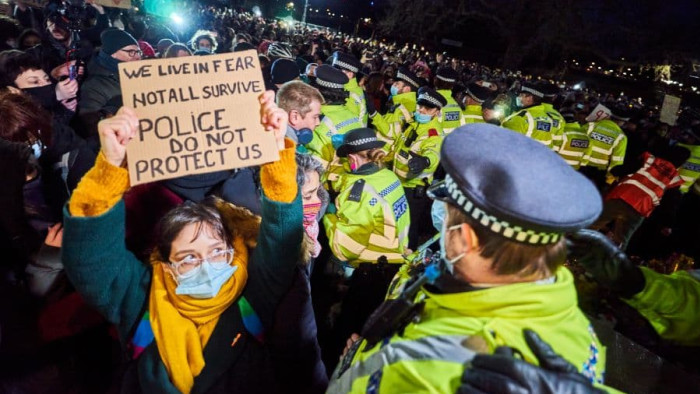
Fair Trials is calling for UK MPs to vote against the Police, Crime, Sentencing and Courts Bill (PCSC Bill) this week. Read our briefing here.
Following the public outcry at the policing of the vigil for Sarah Everard at Clapham Common, there have been questions about the Bill’s extension of powers that would allow the police to close down peaceful protests. Fair Trials has raised concerns about a number of parts of the Bill.
Legal Director, Bruno Min said:
“The Police, Crime, Sentencing and Courts Bill is one of the most dangerous pieces of criminal justice legislation in years.”
“It contains a raft of measures that would perpetuate discrimination in our criminal justice system and undermine fundamental human rights in the UK.”
“We should be extremely worried about increased powers to crackdown on peaceful protests, but this is just the tip of the iceberg. There are plans to extended stop and search powers, to create new offences targeted at Travellers, to normalise video and telephone court hearings well beyond the pandemic, and to create further delays to criminal investigations by lengthening police bail.”
“We call on MPs to reject this Bill outright.”
The proposals in the Bill would:
- Extend police stop and search powers, ignoring overwhelmingly damning evidence about its discriminatory impact and growing concerns about systemic racism in the police.
- Create new offences regarding unauthorised encampments that are blatantly anti-Gypsyist, and they will inevitably draw even more Gypsy Roma and Traveller people unjustly into the criminal justice system.
- Impose a legal duty on local authorities, schools and the NHS to share data with the police. This will result in people unable or unwilling to access essential services and could also lead to the increased use of automated profiling systems and data analytics, which have repeatedly resulted in discriminatory and unfair outcomes when used by police and local authorities.
- Expand the use of remote hearings in criminal cases. During the pandemic video hearings have needed to become more commonplace, but long-term normalisation of this practice is worrying given studies showing that they are an inadequate substitute for in-person hearings, with vulnerable suspects especially at risk of unfair trials.
- Lengthen the maximum period of time that people can be held on police bail, which will remove incentives for police to investigate crimes expeditiously.


